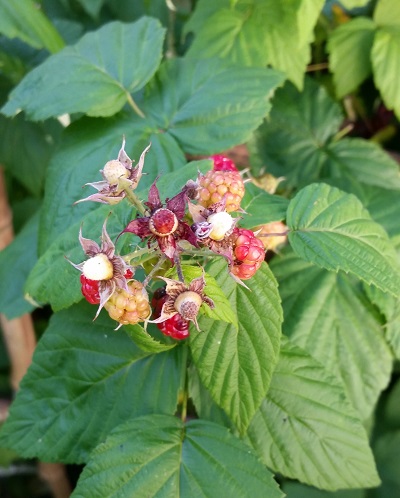When the clothes dryer broke, I thought, “I deserve bad things happening to me because I am bad.”
When the newly installed air conditioner broke, I thought, “That’s what I get for being too big for my britches and thinking I deserve better than I have.”
When the handyman tightened only half the kitchen sink after replacing the counter top and stopped returning my calls, I thought, “I deserve bad treatment. I’m not worthy of better.”
Ah-ha! I caught those thoughts in the thickly padded catcher’s mitt of my increasingly muscular and acute self-awareness. Those thoughts hurt! They don’t help!
 Thinking that I am bad, wrong, inadequate, undeserving – these self-judgmental thoughts are as automatic and unconscious as my blink when a bug beelines for my eye. That bad things happen to me because I am at fault and faulty? My secret shame and pain. That good things might happen only if I work and strain and extend myself? Over-doing seems a logical antidote to under-deserving.
Thinking that I am bad, wrong, inadequate, undeserving – these self-judgmental thoughts are as automatic and unconscious as my blink when a bug beelines for my eye. That bad things happen to me because I am at fault and faulty? My secret shame and pain. That good things might happen only if I work and strain and extend myself? Over-doing seems a logical antidote to under-deserving.
I writhed in agony and sobbed in anguish during most of the first year and half of my abstinence from alcohol after about seven years of increasingly problematic drinking. I beat myself with a baseball bat of self-judgment. What was the matter with me that I couldn’t stop myself from drinking? What was the matter with me that I couldn’t feel better after stopping? I knew the answer: justice was being served to my disgraceful, disgusting self.
I don’t know when and why the turn came – I attended support groups, I was in counseling, I was self-administering every evidence-based addictions treatment I and people helping me could discover – but I began to see that I was getting frighteningly worse, not better. I realized what I was thinking wasn’t helping me.
I had a simple realization. I felt better when I was kind to myself. I felt worse when I scorned myself. When I felt good, I had few thoughts of drinking. When I felt bad, I badly wanted to drink.
The center of my self-administered addictions treatment plan became radical self-kindness.
Why radical? In year 1 of abstinence, I had an 80% chance of relapse. At 2.5 years sober, I still have a 40% chance. Last month when I was driving to the grocery store just to look at the wine, I had a 99% chance. Please, no.
Becoming a practitioner of radical kindness does not result from an act of will. Like abstinence, it takes sustained effort over time with the support of others.
For me, the practice of self-kindness had to be preceded by the practice of self-care followed by the practice of self-calming.
self-care > self-calming > self-kindness
When I began my internship as an addictions counselor in 2005, my supervisor, Cary Hopkins-Eyles, handed me my job description and the first line read, “Self-care first.” That was a world view shift from my primary mode of operation: other-focus, other-care.
Deficits in self-care are common with people in recovery from addictions. I was lucky. “Self-care first” kicked in when I became abstinent and I knew I must become my own addictions recovery caregiver.
In the context of administering self-care to myself, I could then begin to understand how self-calming is a part of self-care. If I am flooded with feeling, I can’t think kind thoughts. I can’t think much of any kind of thought – I am all instinct, ready for fight, fight, flee or freeze. I have to calm myself first. Then I can become aware of what I’m thinking. And I can decide if I want to keep thinking that. Or I can choose to think something else.
I can choose to think something kind.
Instead of giving myself a talking to, I now speak with myself. Here’s an example of a radically kind conversation with myself:
“Oh, Anne, I’m aware you’re thinking self-scolding thoughts and feeling distressed! Hang on! You believe the way to be a very good girl – maybe worthy of, if not love, then approval – is to accept the judgment and blame of others and and to judge and blame yourself. That doesn’t feel very good at all, does it? It’s okay to want to feel better, to feel good. You’ve lived 56 years harshly judged. You’ve done your time with that way. Let’s try something different. So, self-care for you right now would begin with self-calming. Deep breaths and shoulder shrugs work for you. Let’s do those. Good. Now, what would be self-kindness for you? How ’bout we talk through that clothes dryer thinking? And then get you on the clothes dryer problem-solving team, okay? Wow, can you make things happen when you see the problem to solve!”
When I open my catcher’s mitt of awareness, those misery-making, unhelpful hard ball thoughts have transformed to dandelion seeds and I blow them, kindly, away.
. . . . .
Photo: I looked in the yard for a dandelion but couldn’t find one so took a picture of a bunch of black raspberries transformed by me eating every last one of the ripe ones.

Beautifully written!